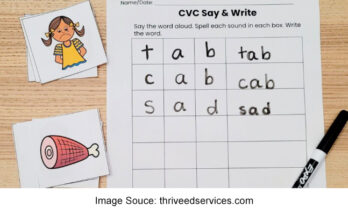The NEET for UG is being conducted by the NTA (National Testing Agency) since 2019. Previously, it was conducted by CBSE. NTA is an autonomous organisation that assesses the competency of candidates for admission to premier institutions. The NEET (UG) – 2022 exam will provide admissions to BDS, MBBS, BAMS, BHMS, BUMS and BSMS courses. As per the new regulations, NEET (UG) has to be conducted as a common and uniform eligibility cum entrance assessment for admissions in all medical institutions. Likewise, NEET is also conducted for admissions into PG. This NEET (PG) is conducted by the NBE (National Board of Examinations). Here, let’s have a look at the current NEET-UG exam details.
Tentative Exam Dates
| Events | Tentative Months/Dates |
| NEET Notification | March 2022 |
| Application release date | March 2022 |
| Last date for applying | March 2022 |
| Application correction window opens on | April 2022 |
| Admit Card | April 2022 |
| Exam date | June 2022 |
| Result announcement | June-July 2022 |
Eligibility Criteria
Any candidate who has cleared/appeared for Class 12 or an equivalent exam can apply. The mandatory subjects include Physics, Biology/Biotechnology, English and Chemistry. The other NEET 2022 criteria are as follows:
The applicants can be
- Indian Nationals
- Foreign Nations
- OCI – Overseas Citizens of India
- NRIs – Non-Resident Indians
- PIO – Persons with Indian Origin
Minimum marks in qualifying examinations
- General Category – 50{7451ff17281851fd612aedc0c87896c1be1a363013a285071940e7cfe513964c}
- SC/ST/OBC – 40{7451ff17281851fd612aedc0c87896c1be1a363013a285071940e7cfe513964c}
- PwD (General) – 45{7451ff17281851fd612aedc0c87896c1be1a363013a285071940e7cfe513964c}
- PwD (SC/ST/OBC) – 40{7451ff17281851fd612aedc0c87896c1be1a363013a285071940e7cfe513964c}
More importantly, any candidate above 17 years of age can apply. Previously, the upper age limit was 25, and there was a relaxation of 5 years for the PwD and OBC/SC/ST candidates. Now, this upper age restriction has been revoked. Also, the age is calculated as on or before 31st December of the first year of admission.
Application Process
A candidate can apply for the NEET (UG) exam by logging on to the official NEET website. Fill in all the mandatory information like Name, Address, DOB, Mobile number, Valid government proof, and check the ‘preview’ before submitting the application. Keep the following documents ready before filling the application:
- Passport size photo in JPG format – 10kb to 200kb
- Postcard size photograph (4”×6”) in JPG format – 50kb to 300kb
- Signature in JPG format – 4kb to 30kb
- Left-hand thumb impression in JPG format – 10kb to 200kb
- Class 10 certificate in PDF format – 50kb to 300kb
- Category certificate (OBC/SC/ST) and PwD each in PDF format – 50kb to 300kb
- Citizenship/Embassy certificate in PDF – 50kb to 300kb
Fees
The application will remain incomplete until the fee payment has been received online. The fee structure for registration is as follows:
| General Category | INR 1500 |
| General – EWS/OBC-NCL | INR 1400 |
| SC/ST/PwD/Third Gender | INR 800 |
| Candidates outside India | INR 7500 |
Successfully registered candidates can download their Admit Cards as soon as it is made available.
NEET Syllabus and Exam Pattern
NEET (UG) is a pen and paper-based test that has to be answered on an OMR sheet. The syllabus covers topics from Chemistry, Physics, Zoology and Botany of Class 11 and 12. Each topic carries 45 questions (total 180), and each question carries 4 marks. Thus, it totals to 720 marks. Each incorrect answer will cost a negative mark (minus one). Also, unattempted questions will be given no marks. The total duration of the assessment would be 3 hours.
Moreover, the question paper for the NEET exam comes in 13 languages – English, Tamil, Telugu, Urdu, Punjabi, Malayalam, Assamese, Marathi, Odia, Kannada, Bengali, Gujarati and Hindi.
NEET Result and Counselling
Candidates must visit the official website and log in with their credentials to view their results. Download the result copy and carry the same for the counselling process. The following are the different quotas available as of now –
- Central and Deemed Institutions/Universities quota seats
- All India quota
- State Government seats
- State/Management quota in Private Dental/Medical Colleges
- Central Pool Seats
- AIIMS/ JIPMER
- All other seats, including management quota in aided minority/ unaided/ non-minority institutions and also NRI Quota.
During counselling, self-declaration, eligibility criteria and various other documents are cross-checked by the authorities of the respective Medical/Dental College.




